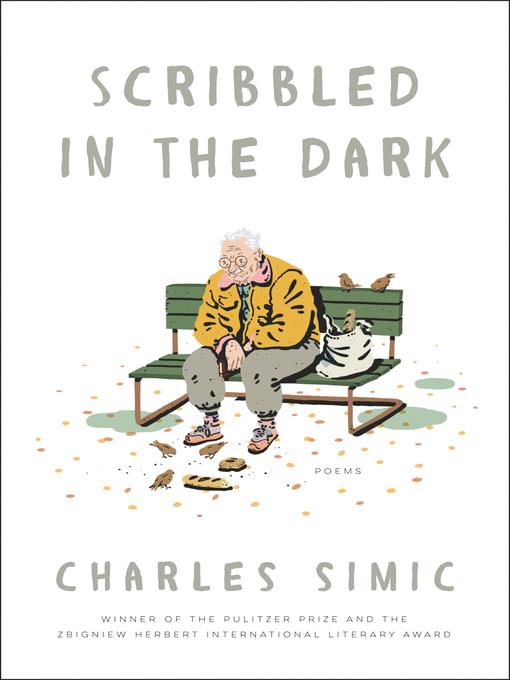
Scribbled in the Dark
کتاب های مرتبط
- اطلاعات
- نقد و بررسی
- دیدگاه کاربران
نقد و بررسی

Starred review from April 17, 2017
In his latest exemplary collection, Simic (The Lunatic), one of American poetry’s most revered and acclaimed figures, reveals a mysterious world that is simultaneously sinister and whimsical, observable through the minute details trailing in the wake of life’s most fleeting moments: “For a mind full of disquiet/ A trembling roadside weed is Cassandra,/ And so is the sight/ Of a boarded up public library.” The book’s references to mortality, the undertaker, and the graveyard could easily mark these as typical late poems, but Simic has always had a knack for channeling the morbid—and managing to blend it with the joyous. It is in navigating those kinds of opposing emotions that he is at his most clever and profound: “I came here in my youth./ A wind toy on a string./ Saw a street in hell and one in paradise.” Something similar could be said of how he handles isolation and the theatricality of the mundane: “The woman I love is a saint/ Who deserves to have/ People falling on their knees,” he writes, “Instead, here she is on the floor/ Hitting a mouse with a shoe/ As tears run down her face.” Image by image, Simic composes miniature masterpieces, offering what appears as a seemingly effortless study in language’s cinematic possibilities.

Starred review from March 1, 2017
Pulitzer Prize winner, MacArthur fellow, and 2007 poet laureate of the United States, Simic (The Monster Loves His Labyrinth) is one of America's most celebrated poets, yet he remains, paradoxically, a kind of visitor or stranger to this country and language. Raised in war-torn Yugoslavia, he came to the United States as an adolescent with a vivid sense of the extent of human brutality and venality. The world that his poems inhabit is a sad, autumnal, estranged affair; his lyric style firmly established with 1967's What the Grass Says, with its terse, gnomic lines, controlled or deflected emotion with dabs of surrealistic color and image. Given Simic's productivity (this is his 27th book of new poems), it is to be expected that he will have long since worked through his most urgent material, and indeed some of the poems here are slight, the diary musings of a practiced and habitual poet. However, his voice is so distinct that even a lesser collection has merit, and on occasion, he rises to the condition of his best earlier work, as in the disquieting "The Infinite": "The infinite yawns and keeps yawning./ ...Does it find us good to eat?" VERDICT Highly recommended.--Graham Christian, formerly with Andover-Harvard Theological Lib., Cambridge, MA
Copyright 2017 Library Journal, LLC Used with permission.

























دیدگاه کاربران